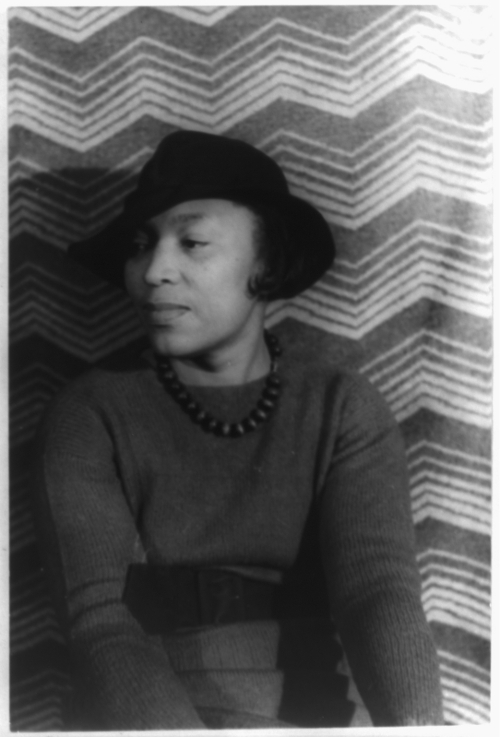Zora Neale Hurston
b. 1891, Notasulga, Alabama; d. 1960, Fort Pierce, Florida
“I will fight for my country but I will not lie for her.”
—Zora Neale Hurston, Dust Tracks on a Road (1942), quoted in Hemenway, Zora Neale Hurston, 287
An eruption of brilliant productivity bracketed, at one end, by the vagabondage of the late bloomer and, at the other, a disturbing decline into reactionary politics and poverty—this is the odyssey of Zora Neale Hurston’s life. A key figure of the Harlem Renaissance, both celebrated and castigated for her flamboyant wit and iconoclastic style, Hurston was thirty-five years old before making a true start in her literary career. Her early years, to age thirteen, were spent in Eatonville, Florida, the first incorporated black community in America; her experiences there would form the bedrock of her writings. The young Hurston worked at a number of jobs, attending Howard University intermittently between 1918 and 1924. She burst upon the Harlem Renaissance scene with the prize-winning story “Spunk,” which was published in the landmark anthology The New Negro (1925). She then co-edited the short-lived radical journal Fire! with Langston Hughes and Wallace Thurman. A scholarship to Barnard, where she studied with the anthropologist Franz Boas, and a stipend from a white philanthropist launched her on a six-year ethnographic collecting tour through southern black culture; her mission was to preserve the oral tradition of the South as she remembered it from her youth. Styling herself a “literary anthropologist,” the material gathered in the field would generate several novels, poems, plays, and dozens of articles in scholarly journals and popular magazines. In 1937, with the publication of the novel Their Eyes Were Watching God, her finest work, she became a literary celebrity. After the release of her memoirs, Dust Tracks on the Road, in 1942, however, she seemed to lose her unique voice and her bearings. Moreover, there was growing criticism among the black intelligentsia of the use of idiomatic black speech in her work; her detractors accused her of peddling nostalgia for the Jim Crow South. By the end of the 1940s, her politics had become startling conservative and she publicly denounced black victories such as the landmark legal decision Brown v. Board of Education (1954). Her ostracism from the literary world that had nurtured and protected her was complete. Hurston’s last years were spent working as a maid in Miami. She died in a welfare home in Fort Pierce, Florida.

Carl Van Vechten. Portrait of Zora Neale Hurston, 1938. Library of Congress, Prints and Photographs Division, Washington, D.C.